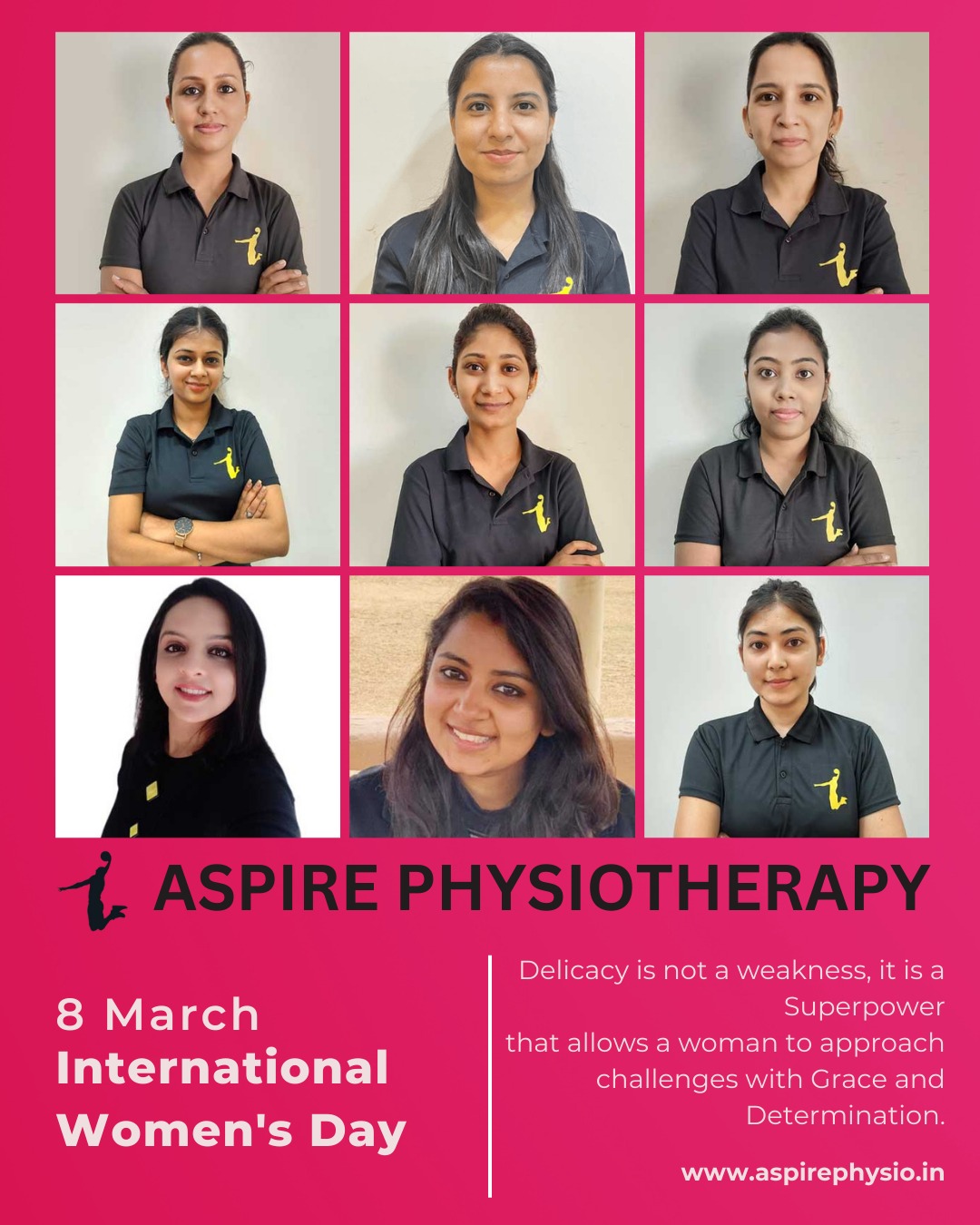
Celebrating International Womens Day with Team Aspire
- Home
- Celebrating International Womens Day with Team Aspire

Every year on International Women's Day, we celebrate the social, economic, cultural, and political achievements of women. This year, let's delve a little deeper and acknowledge the importance of women's health. We, as physiotherapists, see firsthand the unique challenges women face throughout their lives. Physiotherapy can play a vital role in empowering women to live a healthy and fulfilling life.
Women's bodies are incredible. They are capable of childbirth, breastfeeding, and navigating hormonal changes throughout life. However, these same abilities can also lead to specific physiotherapy needs.
Pre and Postnatal Care
Pregnancy is a joyous time, but it can also put a strain on a woman's body. Physiotherapists can help manage common pregnancy-related issues like back pain, pelvic girdle pain, and urinary incontinence. They can also guide expectant mothers on safe exercises to maintain strength and flexibility throughout their pregnancy.
Following childbirth, physiotherapy can be instrumental in postpartum recovery. Physiotherapists can help address issues like diastasis recti (separation of abdominal muscles), pelvic floor dysfunction, and pain associated with breastfeeding.
Addressing Musculoskeletal Issues
Women are more susceptible to certain musculoskeletal conditions like osteoporosis, arthritis, and back pain. Physiotherapy can provide non-invasive pain management solutions and improve mobility and function.
Physiotherapy for Pelvic Floor Dysfunction
Pelvic floor dysfunction is a prevalent concern among women. It can manifest as urinary incontinence, fecal incontinence, sexual dysfunction, and pelvic pain. Physiotherapists specializing in pelvic floor health can assess and treat these issues effectively.
Breast Cancer Rehabilitation
Physiotherapy plays a crucial role in breast cancer rehabilitation. Following surgery and radiation treatment, physiotherapy can help regain shoulder mobility, reduce lymphedema (fluid build-up), and manage pain. This empowers women to regain confidence and return to their daily activities.
Menopause and Beyond
Menopause brings about hormonal changes that can impact a woman's physical health. Physiotherapy can address issues like joint pain, muscle weakness, and balance problems associated with menopause. Additionally, physiotherapy can help manage osteoporosis, a condition where bones become weak and brittle, increasing the risk of fractures.
Taking Charge of Your Health
This International Women's Day, let's encourage women to prioritize their health. Here are some tips:
Physiotherapy: A Partner in Women's Well-being
Physiotherapy is a valuable tool for women's health and well-being. It empowers women to take charge of their bodies, manage pain, improve mobility, and live an active and fulfilling life. So, this International Women's Day, let's celebrate the incredible strength and resilience of women and acknowledge the role physiotherapy plays in supporting their health journey
Dr. Bharti Bansiwal (Sr. Physiotherapist)